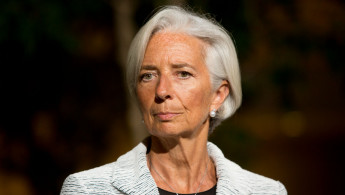Middle East oil producers lost $340 billion last year
Middle East oil producers lost more than $340 billion last year, the International Monetary Fund said on Monday, with low oil prices set to continue.
This amounted to 20 percent losses in GDP, forcing Gulf states and other Middle East oil producers to significantly trim their 2016 budgets.
Low oil prices are set to continue said Christian Lagarde, head of the IMF, and Middle East oil producers must make more stringent cuts to prevent major deficits arising.
"It is also worth remembering that GCC economies have made large fiscal adjustments in the past, and I am confident that they can do it again," she told the Arab Fiscal Forum in Abu Dhabi.
"Higher government revenues would create much-needed fiscal room for manoeuvre, and allow for more spending on… infrastructure, healthcare and education."
For this to happen will require a major recalibration oil-reliant Middle East economies.
This will mean raising or introducing new taxes, such as value added, corporation, property taxes and excise duties.
"The size and likely persistence of this external shock means that all oil exporters will have to adjust by reducing spending and increasing revenue," The National reported.
"Most members of the GCC are in a position where they can pace their adjustment over several years, and therefore limit their impact on growth."
This will allow Gulf states and others to move away from a over-reliance on oil and set them up to become modern tax-based economies, such as Europe and the US, she said.
Around 55 percent of the Saudi Arabia's economy, the region's biggest oil producer, relies on oil, and 92.5 percent of its budget revenues.
Lost oil prices saw Riyadh run a fiscal deficit of 16 percent last year, and expected to stand at 13 percent in 2016, according to a National Bank of Abu Dhabi report.
This will see Gulf states run twin deficits in 2015/16, according to the report.
Indeed, the IMF said that only two oil-producing states - Kuwait and Qatar - ran budgets of less than 10 percent last year.
This means that more tightening of belts will be required next year, the IMF said, which will reduce the shock when oil prices drop in the future.





 Follow the Middle East's top stories in English at The New Arab on Google News
Follow the Middle East's top stories in English at The New Arab on Google News


